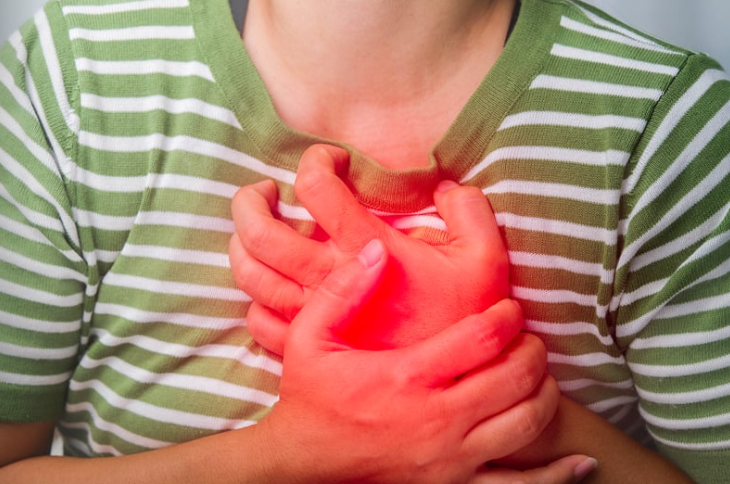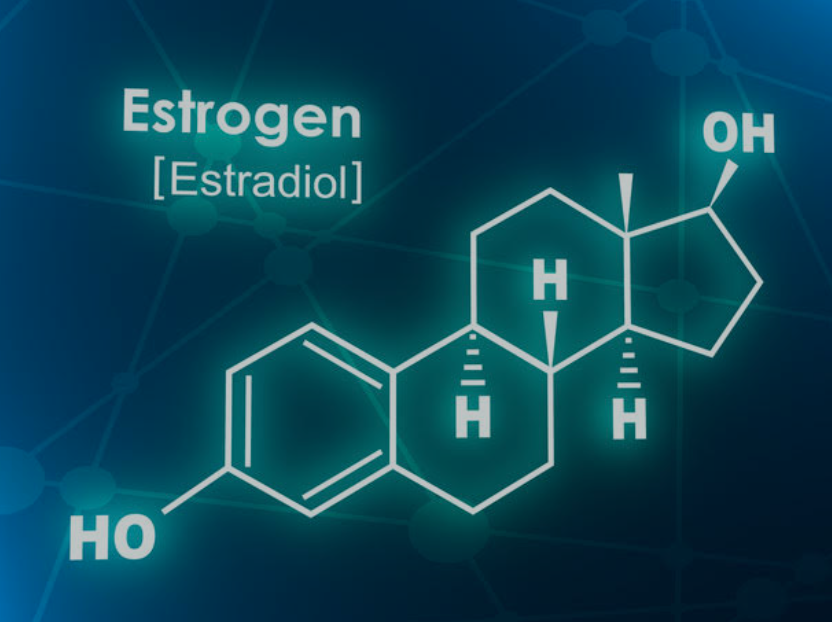In the intricate tapestry of our physiological functions, hormones play a pivotal role in maintaining overall health. Among them, estrogen stands out as a hormone with profound implications for cardiovascular well-being. Whereas it’s Heart Health Month, and I am passionate about this topic after decades of experience in the field of cardiology, as a bedside critical care nurse, a Clinical Nurse Specialist, and then a Cardiology Nurse Practitioner, I’m devoting this month to discussing more about cardiovascular health. In this week’s blog, we delve into the significance of estrogen and how harnessing its potential through bioidentical hormone therapy (BHT) might offer a unique avenue for optimizing heart health.
In 2021 heart disease was responsible for over 310,000 deaths for women – 1 in every 5 female deaths. Every 80 seconds a woman dies from heart disease in the United States, according to the American Heart Association. Cardiovascular disease (CVD) is by far the number one killer of women. In fact, here’s a few startling stats
- In every decade after age forty, more women die of heart disease than breast cancer.
- CVD kills 4x as many women as breast cancer between the ages of 60-79
- CVD is predicted to kill1:2 women, those numbers skyrocketing after menopause
Unfortunately, even with those staggering numbers, studies from The Lancet and American Heart Association (AHA) both reveal that only 8-9% of women feel that heart disease is their greatest risk!
Many women are confused by how hormones impact their risk, so let’s dive in.

Understanding Estrogen and its Cardiovascular Impact
Estrogen, traditionally associated with the female reproductive system, extends its influence far beyond its role in menstruation and fertility. Research has revealed its crucial involvement in maintaining cardiovascular health, earning it the designation of a heart-protective hormone. In fact, in their groundbreaking book Estrogen Matters by Bluming, MD and Tarvis, PhD., they state, that there are few areas in life where women have an advantage over men – heart health is one of them. Estrogen and its heart-protective effect give premenopausal women such an advantage over men, that they have no idea “why women are willing to give that up”! Bioidentical hormone therapy during our postmenopausal years is a way for us to maintain the benefits.
Estrogen’s cardiovascular impact is multifaceted. One of its key roles is promoting vasodilation, the widening of blood vessels, which enhances blood flow and helps regulate blood pressure. Additionally, estrogen is believed to contribute to the regulation of cholesterol levels. It aids in increasing high-density lipoprotein (HDL) cholesterol, often referred to as the “good” cholesterol, while reducing low-density lipoprotein (LDL) cholesterol, the “bad” cholesterol. These effects collectively contribute to a lower risk of atherosclerosis and related cardiovascular events.
Hormonal Changes, Menopause, and Heart Health
As individuals age, particularly in the case of women, the body undergoes hormonal changes that can have profound effects on heart health. Menopause, characterized by the decline in estrogen levels, marks a critical juncture. The reduction in estrogen during menopause is associated with various cardiovascular changes, including alterations in cholesterol metabolism, arterial stiffness, and endothelial (the lining of the vessels) function.
Other changes associated with the decline in hormones during perimenopausal years include:
- More insulin resistant – thereby increasing your risk of diabete
- Increased visceral (abdominal) fat – again increasing the risk of diabetes which is directly linked to an increased risk for CV
- Increased cholesterol
- Increase Triglycerides
- Increased carotid artery thickening
- Increased stiffness in all arteries
- Increased inflammatory markers like IL-6 – inflammation are the real cause of heart attacks
Clearly, the hormonal fluctuations experienced during this phase can elevate the risk of cardiovascular issues. Recognizing the interconnectedness of estrogen levels and heart health becomes essential in addressing the unique challenges faced by individuals, especially women, as they age.

Bioidentical Hormone Therapy: Unlocking the Potential of Estrogen
Bioidentical hormone therapy (BHT) emerges as a potential solution to mitigate the cardiovascular risks associated with declining estrogen levels. BHT involves the use of hormones that closely mimic the molecular structure of those naturally produced in the body. In the context of heart health, the focus is often on restoring estrogen levels to a more balanced state.
Studies have shown that women undergoing bioidentical hormone therapy may experience improvements in arterial stiffness and endothelial function. In fact, a consensus of studies, published in the NEJM editorial by Lee Goldman, MD states that women who were given post-menopausal estrogen had a 40-50% reduction in coronary artery disease. These positive changes in cardiovascular parameters suggest that BHT may contribute to the preservation of heart health by addressing hormonal imbalances, particularly the decline in estrogen.
Consultation, Monitoring, and Estrogen Replacement
Before embarking on estrogen replacement therapy, individuals should seek consultation with a healthcare professional well-versed in hormonal health. This initial assessment considers factors such as age, medical history, and existing health conditions to determine the appropriateness of estrogen replacement. If you have followed me for long and read my blogs you know that I am passionate about the DUTCH test.
Monitoring is a crucial aspect of estrogen replacement therapy. Regular assessments of hormone levels ensure that estrogen remains within the target range, optimizing its heart-protective benefits. Healthcare providers may adjust the dosage or treatment plan based on individual responses and evolving health conditions, emphasizing the need for a personalized and vigilant approach.
In a study published in the Journal of the American Medical Association, it was found that hormone replacement therapy (HRT), which includes estrogen replacement, can have a positive impact on cardiovascular outcomes in postmenopausal women. This highlights the potential cardiovascular benefits of estrogen replacement therapy.
Note: if you are interested in evaluating your hormones and hormone metabolism by using the DUTCH test, you can use my discount code of LDF100 to receive $100 discount. You can also reach out to schedule a free 15-minute discovery call to discuss your hormones and heart health.

Ongoing Research and Future Directions
As research in the field of hormone therapy and cardiovascular health continues to evolve, ongoing studies aim to provide more insights into the intricate relationship between estrogen and heart health. Current research suggests that the timing of hormone replacement therapy initiation, the duration of treatment, and the specific type of hormones used may influence its cardiovascular effects.
The future holds the promise of more personalized approaches to hormone replacement therapy, tailoring treatment regimens to individual needs and considering factors such as genetics, lifestyle, and overall health. As the medical community delves deeper into these nuances, the potential for optimizing heart health through estrogen replacement therapy becomes an increasingly exciting area of exploration.
Conclusion
In conclusion, the story of estrogen and heart health unfolds as a tale of a hormone with remarkable cardiovascular protective powers. As we age, hormonal changes, especially the decline in estrogen during menopause, can pose challenges to heart health. Bioidentical hormone therapy emerges as a beacon of hope, offering a personalized approach to restore estrogen balance and potentially reduce the risk of cardiovascular issues.
The intricate dance between estrogen and cardiovascular well-being underscores the importance of recognizing the role hormones play in maintaining overall health. For those considering estrogen replacement therapy, collaboration with a healthcare provider is crucial for navigating this journey toward hormonal balance and heart health optimization.

Do you feel like your body is working against you? Are you frustrated with a lack of knowledge and providers who will not listen to you? Then take my Free Hormonal Assessment today to finally get some answers!
Stay tuned – my new book, “Create the Vitality You Crave- Unlock Your Healing Powers by Optimizing Your DNA,” will be released in Spring of 2024. If you’d like to be one of a small group of women to whom I gift a PDF version of my book in exchange for a review (5 stars would be awesome, just sayin’), then please reach out via Lori@LoriFinlay.com or via my website. Thanks.
